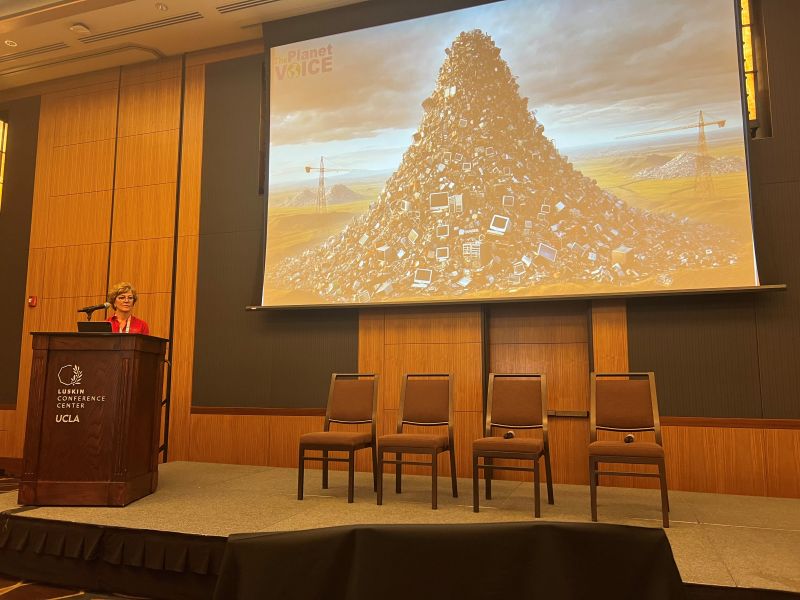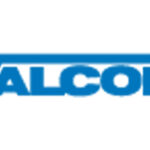We stand at a critical juncture, facing the very real threat of irreversible harm to our planet. This was the urgent message from Christina De Bono, founder and president of Sustainability in AV (SAVe) during her keynote address, “The Path to a Sustainable World.” Delivered at SAVE’s “A Call to Action,” conference at UCLA’s Luskin Conference Center in Los Angeles, Calif., De Bono’s speech was not just a collection of words but a direct appeal for concrete, immediate action from the AV industry. The environmental degradation from climate change is no longer a distant forecast; it’s a present reality, visible in the fiercer hurricanes, devastating California wildfires, and rising sea levels that threaten coastal communities worldwide, she said.
De Bono emphasized that while these challenges are global, the AV industry has a specific and profound responsibility to address one of the most significant contributors to environmental damage: electronic waste, or e-waste.
The Staggering Challenge of E-Waste
One of the most profound challenges facing sustainability advocates is the massive amount of e-waste generated each year. The statistics are alarming and paint a clear picture of a growing crisis.
- In 2024, the world generated an estimated 62.5 million tons of e-waste.
- In the U.S. alone, the average American is responsible for disposing of 47 pounds of e-waste annually.
- Despite the volume, the recycling rate for used electronics in 2024 was less than 18%.
This mountain of discarded electronics isn’t just taking up space in landfills. E-waste frequently contains hazardous substances like mercury, lead and cadmium, said De Bonoe. When not disposed of properly, these toxins can seep into soil and groundwater, causing significant environmental contamination and posing serious health risks to human populations.
De Bono pointed out a crucial connection: many of these discarded products are integral components of the systems our industry designs, installs and maintains. This direct link means the AV industry cannot afford to be a passive bystander. We have a moral and professional obligation to take concerted action in support of global sustainability efforts.
Sustainability: Good for the Planet, Good for Business
Addressing the e-waste problem is not just an environmental imperative; it’s a strategic business decision. As De Bono highlighted, “[Sustainability] directly helps our businesses.” Embracing sustainable practices is not a cost center but a value driver that can unlock significant benefits.
New Market Opportunities
Adopting a sustainability-first mindset opens up new market opportunities. As awareness grows, customers are actively seeking partners who share their values. Companies that can offer green solutions, responsible end-of-life product management, and a demonstrable commitment to the environment will have a powerful competitive advantage. This can lead to new revenue streams, from offering recycling services to consulting on sustainable AV system design.
Mitigating Business Risks
Sustainability also helps to ameliorate business risks. This includes regulatory risks, as governments worldwide implement stricter environmental laws and reputational risks. In an age of corporate transparency, a poor environmental track record can damage a brand’s reputation and alienate customers, partners and top talent. Proactively managing environmental impact is a key part of modern risk management.
Attracting Partners and Talent
The shift in mindset is clear: customers, integrators and business partners increasingly want to associate themselves with sustainability-minded vendors and suppliers. A strong environmental, social and governance (ESG) profile makes a company a more attractive partner. It also resonates with employees, particularly younger generations who prioritize working for organizations that make a positive impact on the world.
Actionable Strategies for the AV Industry: The SAVe Program
De Bono’s “call to action” was not without a clear roadmap. She presented tangible strategies that AV professionals and companies can implement immediately, with a strong focus on the initiatives offered by SAVe.
SAVe provides a framework for the AV industry to contribute to a circular economy through responsible electronics recycling and reuse. It’s a direct answer to the question, “What can we do?”
Get Involved with SAVe
- A Second Life Electronics Recycling Program: SAVe’s flagship program offers a certified, responsible pathway for recycling and repurposing used AV equipment. It ensures that discarded electronics are handled properly, preventing hazardous materials from ending up in landfills and giving viable components a second life.
- Become SAVe Certified: Companies can pursue SAVe certification to validate their commitment to sustainable practices. This certification demonstrates to clients and partners that your organization adheres to the highest standards of environmental responsibility in the industry.
- Engage with the SAVe Ambassador Program: Individuals can become SAVe ambassadors, acting as advocates for sustainability within their organizations and the broader AV community. Ambassadors help spread awareness, share best practices and drive the adoption of green initiatives.
By engaging with these programs, AV companies can move from passive acknowledgment to active participation in solving the e-waste crisis.
Our Industry, Our Responsibility
Christina De Bono’s keynote was a powerful reminder that the path to a sustainable world requires every industry to step up, and the AV industry is uniquely positioned to lead. The technology we create and manage is at the heart of the e-waste problem, which means we must also be at the heart of the solution.
By embracing sustainability, we not only protect our planet for future generations but also build stronger, more resilient and more profitable businesses. The call to action has been made. Now, it is up to us to answer it.















